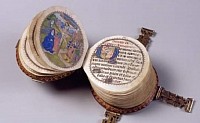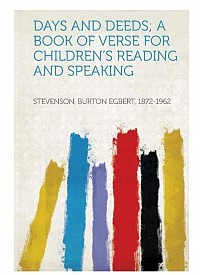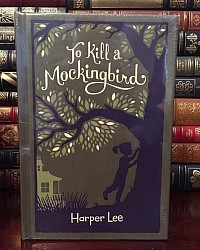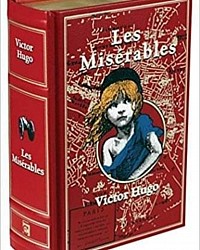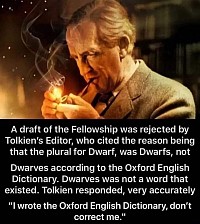FUN BOOK FACTS
The world’s fastest speed-reader record belongs to Howard Stephen Berg, popularly referred to as Speedy Berg.
He read over 25,000 words per minute in 1990 and set the world record at 80 pages per minute.
While the 1990 Guinness Book of World Records does list him as the record holder then, they no longer seem to recognize any speed reading records.
This may be because the exact word amount they read is hard to prove.
Some critics believe speed reading records can be broken by just pre-reading or memorizing the text.
While his records may not be written in stone, Mr. Berg’s abilities to read and learn fast are widely recognized.
Jane Austen wrote Persuasion and Northanger Abbey in Bath, England, which also happens to be where you can attend the annual Jane Austin Festival.
The event celebrated its sixteenth anniversary this past September, and included country dances, calligraphy workshops, dramatic readings, and a whole lot of bonnets.
You can also visit the Jane Austen Centre year-round, a small museum with costumed tours and afternoon tea services.
Every miniature book is a piece of art, but a miniature book that is circular, is a masterpiece.
This exceptional book, Codex Rotundus, was crafted around 1480. It was a book of hours, a Christian devotional book popular in medieval ages, written in Latin in French.
Despite being only 9 cm in diameter, it consists of 266 pages. The book spine measures only 3 cm, so the book must be held together by 3 clasps. The clasps are monograms shaped in the form of different Gothic alphabetic letters.
The creator of Codex Rotundus, an anonymous book painter from Bruges, Belgium, not only beautifully designed the text inside the round pages but also painted 30 exceptional initials.
The world´s largest fine for an overdue library book is $345.14!
The world´s largest fine for an overdue library book is $345.14 (£203.29)! It is the amount owed at two cents a day for the poetry book, Days and Deeds. It was checked out of Kewanee Public Library, Illinois, USA in April 1955 by Emily Canellos-Simms.
Although the book was due back on the 19th of April, 1955, Emily found it in her mother´s house 47 years later and presented the library with a check for the overdue fines.
Get it: Days and Deeds...
Harper Lee once got a year’s wages as a gift from her friends.
As a struggling young writer, Harper Lee once got a year’s wages as a gift from her friends so that she could quit her job and devote more time to writing. She wrote To Kill a Mockingbird.
The book became an immediate success, winning the Pulitzer Prize for Fiction in 1961. Harper Lee, however, did not to publish another book until her death bed 55 years later.
Get it: To Kill a Mockingbird
Reading for just 6 minutes each day can help reduce stress by up to 68%, study finds.
A study at the University of Sussex found that reading can reduce stress by up two thirds – making it a much more efficient relaxation method than listening to music, drinking a hot cup of tea, or even taking a walk. Reading for just 6 minutes each day can help reduce stress by up to 68%!
Participants who engaged in just six minutes of reading for pleasure were also found to have a significantly slower heart rate and reduced muscle tension.
Another study, led by researchers from Yale University School of Public Health, revealed that adults who reported reading books for more than 3 ½ hours per week were 23 percent less likely to die over 12 years of follow-up, compared with those who did not read books.
Portuguese Library Biblioteca Joanina is home to a swarm of bats that feed on book-eating insects every night.
Biblioteca Joanina has a rather unlikely cleaning crew – in this grand old Portuguese library, bats act as pest control. Swarms of bats hide behind the rococo bookcases during the day, while at night they feast on book-damaging insects, helping preserve the over 300-year-old building and its rich cultural heritage.
J.K. Rowling was not the first author to create a character named “Harry Potter.”
One Polish author had done it 25 years earlier! The boy who lived had, in fact, lived ever since 1972.
A short story entitled “Harry Potter” was published in a communist Poland, on March 19, 1972, in a literary magazine Życie Literackie. Its author, Jan Rostworowski (1919-1975), was a Polish poet and short story writer. In 1940, as a soldier of the Polish Army, he moved to Great Britain, where he spent twenty-eight years.
Rostworowski’s text, published 25 years before Harry Potter and the Philosopher’s Stone, tells a story of a seventeen-year-old Harry Potter who, unlike J.K. Rowling’s protagonist, does not receive his Hogwarts letter.
In fact, his life is rather ordinary – as a shopkeeper, he delivers the original Cracovian sausage and pickles. He is not quite talkative, as he replies mostly with “Oh yeah” and “Oh no.” In the end – he suddenly vanishes.
Bogusław Rostworowski, the son of Jan Rostworowski, explained that the story was, in fact, the poet’s memory from times when he used to deliver meat to an English shop. The character of Harry Potter was to depict the shop owner.
Rostworowski made the name up – however, it is important to highlight that the surname “Potter” was rather popular in England at that time.
Apart from the name of the protagonist, the only similarities to J.K. Rowling’s works which can be found in the Polish text are two passages. One of them is: “The telephone in Harry’s house does not ring, but chirps like a bird” – which for the Potterheads might resemble magical carrier owls. The other is that the narrator casts a curse on “Mr. P.” Apart from that – the texts are NOT at all ALIKE.
This monastery in Egypt is home to the oldest continually operating library in the world, established in AD 565.
The library at Saint Catherine’s Monastery at the foot of Mount Sinai is the oldest currently operating in the world, and has the second largest collection of ancient manuscripts and codices, just after Vatican City.
It houses several unique texts, including the Syriac Sinaiticus and, until 1859, the Codex Sinaiticus, the oldest known complete Bible dating back to around 345 CE.
Victor Hugo wrote one of the longest, most grammatically correct sentences ever printed.
Victor Hugo's Les Misérables, published in 1862, is considered one of the finest works of French literature and remains one of the most well-known historical novels ever written.
The novel explores the effects of the French Revolution of 1789 on the population of Paris and explores a wide array of topics including ethics, history, justice, and religion.
Get it: Les Misérables
In the Harvard Library, there are three books suspected to be bound in human skin.
One of Harvard Library’s books, Des destinées de l’ame, is 99.9% certain to have been bound in human skin. It has been sitting in Harvard’s Houghton Library since the 1930s.
The practice of binding books in human skin was not at all uncommon in the 15th century, and was done to commemorate the dead, among other reasons.
Fun Book Fact! THIS MEME IS A LIE!
According to this meme, the editor appealed to the Oxford English Dictionary, saying that the word “dwarves” didn’t exist. The meme ends with Tolkien saying: “I wrote the Oxford English Dictionary. Don’t correct me.”
It’s completely WRONG in a way that anyone who knows anything about Tolkien would spot.
First, Tolkien’s editor would not reject a draft because he disagreed with how he spelled one word. Especially when the author is a distinguished scholar of old languages. They had a very good relationship and the editor admired his writing.
Allen & Unwin, who published The Hobbit, actually begged for a sequel. Tolkien offered them The Silmarillion and they demurred. So Tolkien spent a decade writing LOTR for them.
Second, Tolkien would never have said something so silly as, “I wrote it,” of a vast project like the OED. Work on the OED had begun in 1879. (By 1884, the editors had reached the word “ant.”) The first edition finally appeared in 1928, in ten large volumes. It covered 400,000-some words.
Finally, in a 1937 letter to his editor after the publication of The Hobbit, he calls his usage “a piece of private bad grammar,” but goes on to defend it.
In Appendix F of The Return of the King, he wrote “I have ventured to use the form dwarves, and so remove them a little, perhaps, from the sillier tales of these latter days.”
Get the book here. #ad


